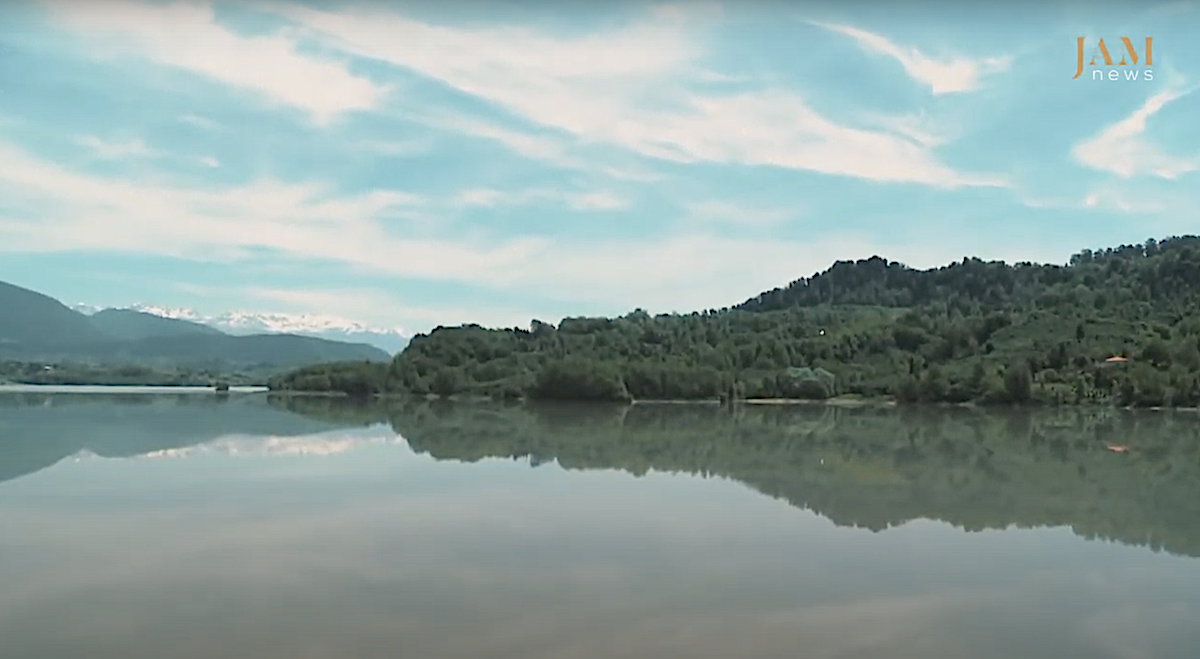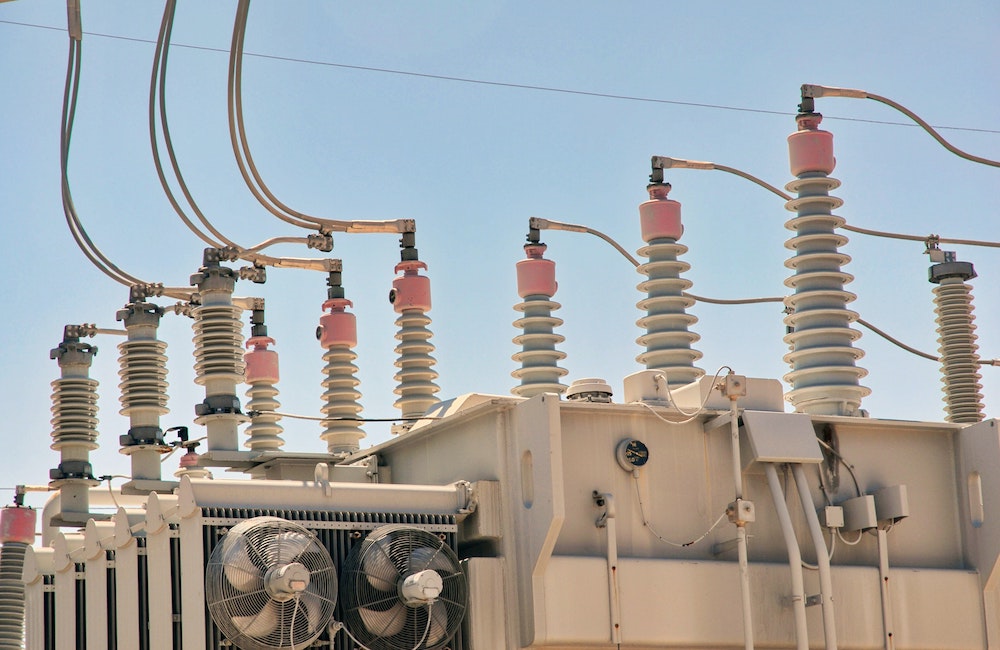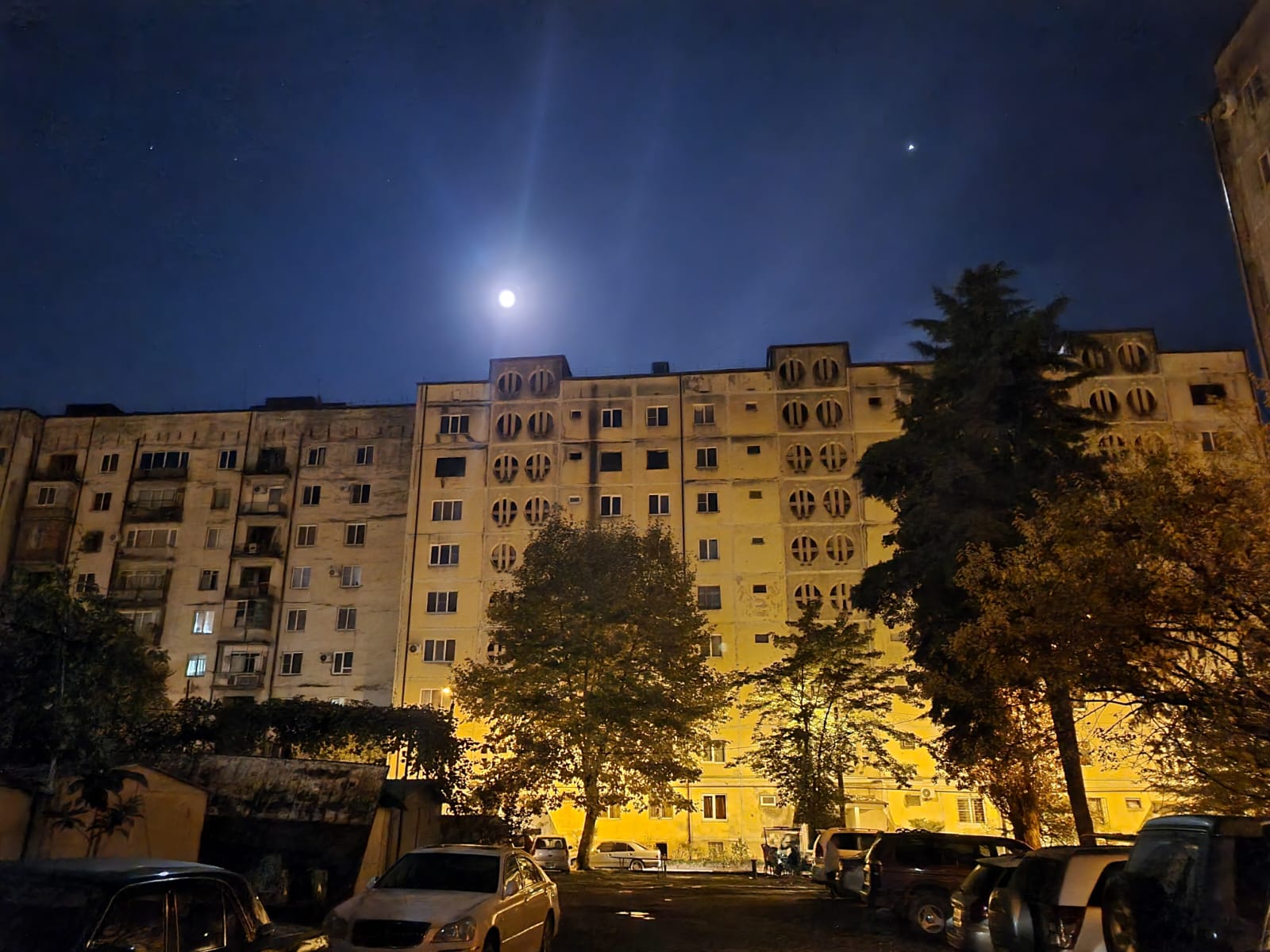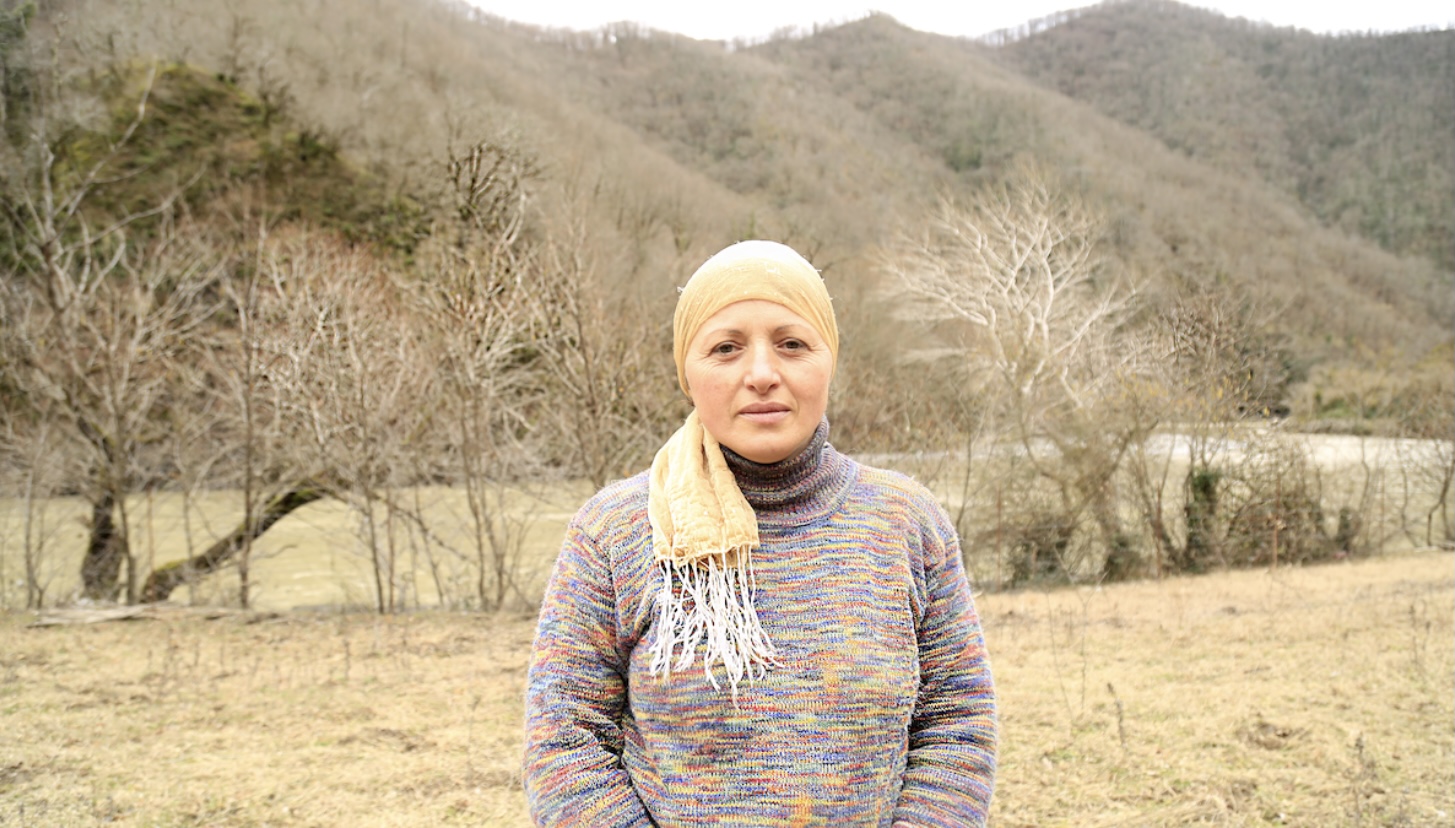"Georgians and Abkhazians work well together when they both need it" - Inguri HPP director. Video
Georgians and Abkhazians at Inguri HPP
The Inguri hydroelectric power plant stands as the only location where Georgians and Abkhazians collaborate. Levan Mebonia, the director of the largest and most significant hydroelectric power plant in the South Caucasus, elucidates how they achieve a level of cooperation that remains elusive in all other areas.
The Inguri HPP is situated within the zone of the Georgian-Abkhaz conflict, with the reservoir and a portion of the diversion tunnel on the Georgian side and the remaining tunnel, the HPP facility, and four additional overflow HPPs on the Abkhaz side. Both sides engage in the joint operation of the HPP and the sharing of the electricity it generates.
Summary of the conversation
Cooperation and mutual understanding arises from the operation of Inguri HPP
This is the only place where there have been very intense meetings between the Georgian and Abkhaz sides. The first meeting occurred shortly after the end of the military phase of the conflict in the early 1990s when Georgian forces withdrew from Abkhazia, on the Inguri bridge just a few days later.
All participants in the meeting had recently lived in the same country, the USSR. During the Soviet era there was a unified energy system, and these people knew each other well and had mutual respect.
They verbally agreed that Inguri HPP would remain apolitical, dedicated solely to electricity generation. It was decided that 40 percent of the electricity produced by the plant would stay in Abkhazia, while 60 percent would go to Georgia.
Since that day, there have been no conflicts or disputes regarding energy. This cooperation and mutual understanding are essential due to the technical aspects of Inguri HPP’s operation. If you interrupt the power, the water supply here will cease, and everything will come to a halt.
Abkhazia particularly benefits from this cooperation. Though Inguri HPP holds immeasurable importance for Georgia as well, however, as Georgia has seen significant developments in its energy sector, with the addition of numerous new energy sources, including thermal power plants.
For Abkhazia, the sole sources of electricity are the Inguri HPP and the Vardnili HPP (located in the Gali district). Hence the effective functioning of these hydropower plants is absolutely crucial for their energy supply.
The 60/40 principle of energy distribution – how it works
It’s important to note that the 60/40 principle is an annual calculation. During the winter months when there’s less water in the Inguri, almost 90 percent of the generated energy goes to Abkhazia. In contrast, during the flooding season from March to October, about 70-80 percent goes to Georgia.
Since 2013-2014, energy consumption in Abkhazia has nearly doubled, attributed to cryptocurrency mining activities. Additionally, the population has been gradually growing. As people’s income increased, they began using electricity for heating, especially in the absence of gasification.
But there’s a positive trend in 2023 — we observed a decline in consumption in Abkhazia. The Abkhazian authorities realize that this trend cannot be sustained for long. Abkhazia’s energy consumption has reached 3 billion 100 million kWh per year, which is almost on par with Tbilisi’s. This is a significant amount when compared to the population size and infrastructure of Tbilisi.
They have become more resistant to mining activities recently. And they’ve initiated the installation of meters in apartments.
How the meetings between Georgians and Abkhazians, employees of the HPP, are held
The Gali district is predominantly Georgian, only a few employees are Abkhazian. The atmosphere is marked by mutual friendliness. Employees commute daily from Zugdidi, with approximately 60 people traveling back and forth. Many of them use their own vehicles, with the necessary permits.
In terms of meetings, the most challenging period is typically the onset of winter, when key figures in the energy sector from both the Georgian and Abkhazian sides come together. The minister of economy of Abkhazia has attended these meetings on numerous occasions.
Russia supplies electricity to Abkhazia with Georgia’s permission
We have provided technical assistance on numerous occasions. For instance, when they in Abkhazia required a large transformer, they borrowed it from us.
It might come as a surprise to some, but Russia does not supply electricity to Abkhazia without the consent of Georgia. Both Georgian and Abkhazian dispatch services jointly oversee the volume and capacity of electricity coming from Russia to Abkhazia.
Russia has a program designed to support Abkhazia’s energy sector. When there’s a need for substation upgrades, transformer purchases, equipment acquisition, or to address significant issues, these expenses are incorporated into the program.
The bill is then sent to the Russian company that provides electricity to Abkhazia. In essence, the funds come from the Russian budget.
How Inguri HPP worked during the Georgian-Abkhazian war in the 1990s
The director at that time was Giorgi Mikava, a respected power engineer who remained at the station even when the Georgian army and units withdrew from Abkhazia. There were only a few of us left.
Many people evacuated their families, including children, and they started returning on the second or third day. In about a month we had a team of 60-70 people, and the power station never halted its operations for a minute.
Abkhazians and Georgians help each other
I recall an incident in 1994 when a large pipe burst. In the 1990s, the station was in a severely deteriorated technical condition. The first floor of the station, where auxiliary equipment for the turbines was situated, was flooded.
It was a major accident, but I distinctly remember that the Abkhazian side provided substantial support – both technically and physically. They assisted with security, transportation, and even brought pumps to help mitigate the situation. Their assistance was invaluable.
A similar incident occurred in 2018. Several pipes that were left over from repairs, it caused such a significant water release that it flooded the first floor once again. We received extensive assistance from various quarters, including power engineers from France, Switzerland, Russia, and Ukraine.
Abkhazians once again extended a tremendous helping hand. They delivered the pumps, and they stood right by our side.
Even if someone wasn’t actively working but stood there offering encouragement, it was a significant motivator.
“Economic cooperation is the best way to resolve conflict”
Abkhazia possesses significant hydropower potential, including the remarkable potential of the Kodori Gorge and the Ahva River.
It’s a path where the economic interests of both sides can be met on an equal and equitable basis. This is, in my opinion, the most effective way to rebuild trust and foster positive relationships. The path of violence holds no future, and we must not allow it to prevail.
On attempts to hand over Inguri HPP to Sukhumi or Russia
There were rumors that in 2015-2016, the then head of [Abkhazian] ChernomorEnergo allegedly negotiated with the Georgian side to legally take possession of Inguri HPP. But no, no such negotiations were held.
When the Khajimba government came to power in Abkhazia, there were discussions in certain circles about formalizing their stake in the Inguri HPP. This didn’t materialize for two primary reasons.
Georgia did not agree, and Abkhazia side would have to manage their share, invest funds, and seek investments, which is currently beyond their means. Talks on this matter have ceased.
At one point, there were numerous rumors in the media suggesting that the Inguri HPP might be transferred to the Russian company Inter RAO. However, this never materialized. The Georgian government fully owns the plant, holding a 100 percent stake.
“Abkhazians have leverage to completely disconnect Inguri HPP. But in this case they would punish themselves”
All the power lines and generation sources are located in Abkhazia. Some of these lines deliver electricity to the Georgian side, while others serve the Abkhazian side. In theory, the Abkhazian side can choose to maintain power supply to Abkhazia while disconnecting the lines that provide electricity to Georgia.
However, in such a scenario, the issue of water comes into play. If the water flow is interrupted, the line becomes useless because the turbines won’t function without water.
Thus, it’s not possible for either side to harm the other even if they wanted to.
The opposition in Abkhazia accused Georgia of deliberately lowering the water level
Water levels are indeed closely tied to power generation. We take great care to utilize every drop of available water. And [such talk] is related to too high consumption of electricity in Abkhazia in winter.
Representatives from the Abkhazian opposition approached me with concerns, and I presented them with data showing that in the early days of December, Abkhazia received 90 percent of the generated electricity. I asked what then they’d perceive as malicious intent on the Georgian side?
Certainly, we have hosted their journalists and delegations on numerous occasions. We’ve physically demonstrated to representatives of ChernomorEnergo the actual water levels in the reservoir. We’ve even installed a water level sensor, and the dispatcher in Sukhumi can access and verify it. Our relations are entirely open.
Creation of a tourist complex at Inguri HPPs
‘Enguriatraction’ Ltd. has been established and is managed by a highly energetic and innovative individual, Nika Antidze, the former head of the Agency for the protection of monuments.
If the Abkhazian side were to be involved, it would require tourists to cross the border, which is currently not possible due to legal restrictions that deem entering Abkhazia from Russia as an unlawful act.
The dam itself is an attractive destination for tourism, and the Saberio interchange (at the Abkhazian side), standing at an impressive 271.5 meters high with its surrounding mountains, makes a grand impression.
The engine room, where the turbines and generators are housed, reaches depths of 120 meters. To access it, one must travel through a 1,700-meter-long car tunnel or use special elevators. Upon arrival, visitors are greeted by a vast hall measuring 56 meters in height, 122 meters in length, and 42 meters in width, filled with various devices and fascinating features.
So, if it were possible to travel there, tourism would certainly thrive.
“Economic cooperation projects can be developed in any sphere”
This is the starting point – treating others as you would want them to treat you. This principle underpins economic cooperation.
When the medical program for citizens of Abkhazia was initiated, especially during the epidemic, it significantly shifted perceptions of the Georgian side among many Abkhazians.
I recall the case of an Abkhazian, a former employee of ours, who was in an accident. We brought him to Tbilisi, and the Georgian ministry of health provided assistance. This young man underwent surgery in Tbilisi and his neighbors contacted me to express their heartfelt gratitude.
Economic cooperation projects can be developed in various sectors, including agriculture, transportation, medicine, and education, among others. It may take time, and solutions may emerge gradually.
As the saying goes, ‘Destroying is easy, building is difficult.’ However, my colleagues and I have been together for many years, and we hold onto the belief that trust will be rebuilt, and we will grow closer.
It is this that keeps us here.
























